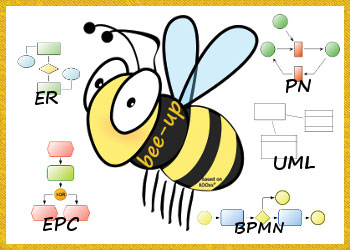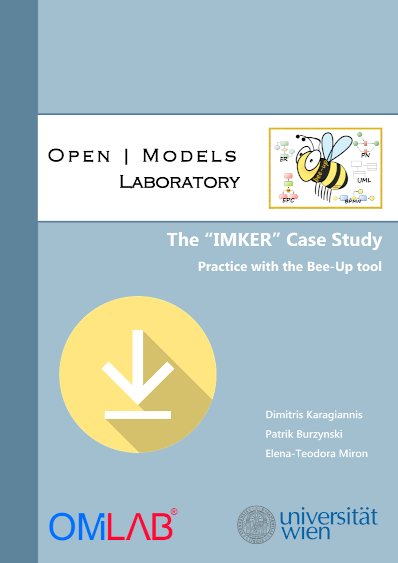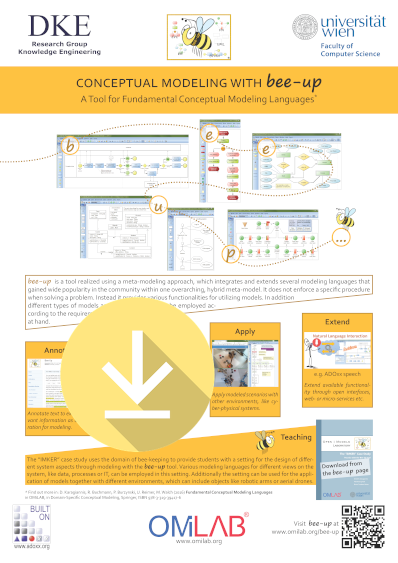Tutorial
MODELS2023 Tutorial:
How to Develop and Apply Conceptual Models:
The Bee-Up Open-Source Research and Education Tool
Organizer:
Mälardalen University, Sweden
Date/Time: October 01, 2023, 16:30 - 18:00
Location: Vasteras, Sweden
 The research field of conceptual modelling identifies models as artefacts describing a real or proposed system on an abstraction level that is adequate for a given purpose. This tutorial focuses on the Bee-Up hybrid multi-language modeling environment and key features that increase the value of models beyond their basic function (as diagrammatic documentation/ communication support). Bee-Up supports modeling with several established languages - BPMN, EPC, ER, UML, Petri Nets - enriched with semantic links between various model types.
The research field of conceptual modelling identifies models as artefacts describing a real or proposed system on an abstraction level that is adequate for a given purpose. This tutorial focuses on the Bee-Up hybrid multi-language modeling environment and key features that increase the value of models beyond their basic function (as diagrammatic documentation/ communication support). Bee-Up supports modeling with several established languages - BPMN, EPC, ER, UML, Petri Nets - enriched with semantic links between various model types. The goal of the tutorial is to highlight that Bee-Up is not limited to diagramming with established languages, but also facilitates model-value through model analysis, transformation, execution, and integration with other systems. A selection of these will be demonstrated during the tutorial. The growing interest in low-code/no-code approaches drives even more the need for models, that have functionality to interact and control smart devices.
As a practical example for the tutorial, a case from the
 is utilized that demonstrates how metamodeling is applied to adapt the Bee-Up tool to novel requirements related to decision support systems. Specifically, the adaptation showcases an industrial case related to worker allocation and how the available Decision Model and Notation in Bee-Up has been conceptualized, implemented, and deployed on a physical experiment. Following a community-based innovation approach, participants are encouraged to experiment with the implementation of metamodels and model-value functionalities hands-on.
is utilized that demonstrates how metamodeling is applied to adapt the Bee-Up tool to novel requirements related to decision support systems. Specifically, the adaptation showcases an industrial case related to worker allocation and how the available Decision Model and Notation in Bee-Up has been conceptualized, implemented, and deployed on a physical experiment. Following a community-based innovation approach, participants are encouraged to experiment with the implementation of metamodels and model-value functionalities hands-on. Acknowledgment: This work has been supported by the FAIRWork Project and has been funded within the European Commission’s Horizon Europe Programme under contract number 101049499. This content presented expresses the opinions of the presenters and not necessarily those of the European Commission. The European Commission is not liable for any use that may be made of the information contained in this paper.
Bee-Up is an educational tool that can obtained at https://bee-up.omilab.org.
Registration
Please register via the organizer.
Prerequesites
As the tutorial allows for a hands-on participation you are invited to install Bee-Up on your PC in advance to follow the demonstration during the tutorial.
Further Information
Further information on the Bee-Up tool is accesible online at https://bee-up.omilab.org.
HINT: The Imker Case study includes detailed instructions a) how to install Bee-Up and b) create your first conceptual models with the tool.


